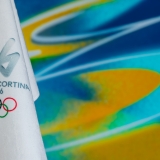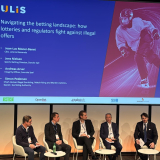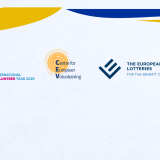
EL/WLA Sports Betting Seminar - Highlights from the 2025 edition in Stockholm
The 2025 edition of the annual joint EL/WLA Sports Betting Seminar in Stockholm (21-23 May), brought together over 120 participants from 40 different countries, uniting global sector leaders to explore how innovation, regulation, and responsibility are shaping the future of sports betting.
As per tradition, the seminar was organised alongside a high profile international sporting event. This year participants had the opportunity to attend the quarter-final of the Ice Hockey World Cup in the iconic Avicii Arena, where in front of a sold-out crowd of 13,850 people, resident team Sweden secured its spot in the semi-final. Ice hockey, a national passion in Sweden, served as a powerful reminder of how deeply sports culture connects with the themes of engagement, integrity, and regulation at the heart of the seminar.
The two days business programme reflected the various perspectives from EL and WLA Members as well as from top technology providers and key stakeholders. It was structured in three main thematic blocks: 1) Trends in Betting Offers, 2) Revitalising sports betting with new technology and 2) Duty of care and responsibility in the legal markets.
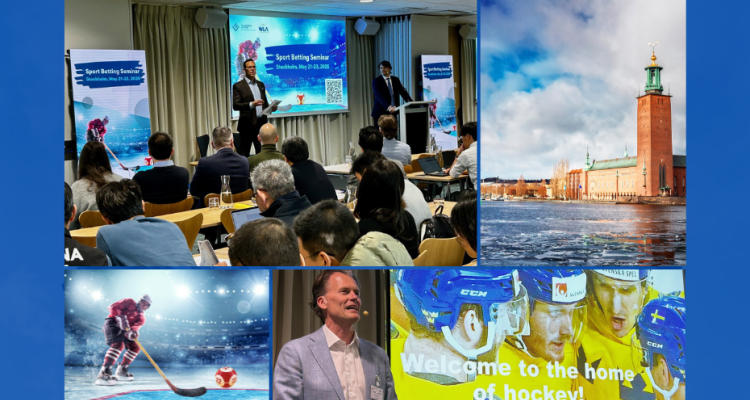
Before deep-diving into the three main themes, the opening session focused on the national market of the country hosting the event. This year we had the pleasure of being joined by Fredrik Wastenson, CEO of Svenska Spel, who gave the audience a regional update of the current gambling and sports market in Sweden in terms of size, licensed companies, market shares as well as status in the governing legislation 5,5 years after re-regulation.
Another best practice and natural follow up was the presentation of the findings of the market research commissioned to Christian Kalb (CK Consulting), providing the global overview of the sector. Amongh the most relevant results, Christian highlighted mobile-driven growth, regulatory trends, and the rise of illegal betting via crypto.
It's a fact: sports betting continues to expand rapidly, but regulation and innovation must go hand in hand.
Block 1: Trends in Betting Offers – Innovation in a Rapidly Evolving Market
The first session explored how operators and tech providers are adapting to a fast-changing landscape shaped by customer expectations, digital habits, and emerging sports formats.
- Cristiano Cinotti (Sisal, Italy) emphasised the importance of customer-driven innovation. In a mobile-first market like Italy, Sisal uses real-time data, customer feedback, and trend monitoring to anticipate shifts in player behavior. Their “On Demand” platform, launched eight years ago, exemplifies how early detection of new interests can shape successful product development.
- Jens Nielsen (Sportradar, Denmark) presented a full-circle approach to sports betting innovation. He stressed the need for lotteries to remain cost-effective, responsible, and relevant by embracing flexible, tech-driven solutions. Live betting, he noted, is now the dominant format, pushing the boundaries of regulation and innovation alike.
- Thomas Landheer (Nederlandse Loterij, The Netherlands) tackled the challenge of engaging Gen Z bettors, who consume sports differently — primarily via social media and through a focus on individual athletes. He highlighted opportunities in interactive content, influencer-led leagues, and non-wagering engagement tools like fantasy games, polls, and gamified livestreams.
- Sam Depoortere (OpenBet, Greece) explored the rise of Player Props and Bet Builders, showing how customization and data-driven design can create more engaging and accessible betting experiences.
- Finally, Ivan Rozic (EveryMatrix) challenged the audience with a provocative question: “Why are your virtual sports dying?” He pointed to the need for AI and advanced tech to revitalize virtual offerings and meet the expectations of a new generation of players.
The future definitely belongs to operators who can adapt quickly and creatively to a dynamic market.
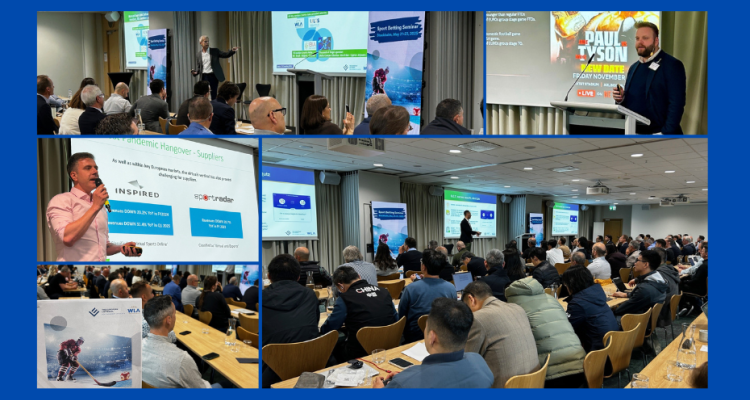
Block 2: Revitalising Sports Betting with New Technology
This session explored how technology is transforming sports betting — from combating fraud to leveraging AI for smarter, safer, and more engaging experiences.
- David Selig (Tipp3, Austria) shared how his team tackled robotic betting and bonus abuse, turning risk into revenue through data-driven solutions.
- A dynamic panel discussion led by Olivier Haine (Scooore, Belgium) brought together experts from Kambi, OPAP, Sportradar/VAIX, and OpenBet to explore AI's growing role in sports betting. Key themes included personalisation, automation, and the future of AI-powered betting agents.
- Daniel Romanowski (Lottopar, Brazil) closed the block with insights into Brazil’s rapidly evolving market. He highlighted regulatory progress, opportunities for operators, and how Lottopar is setting a national example for responsible, innovative betting.
These discussons emphasised how technology is not just enhancing operations but redefining the future of sports betting - from fraud prevention to market expansion and AI-driven innovation.
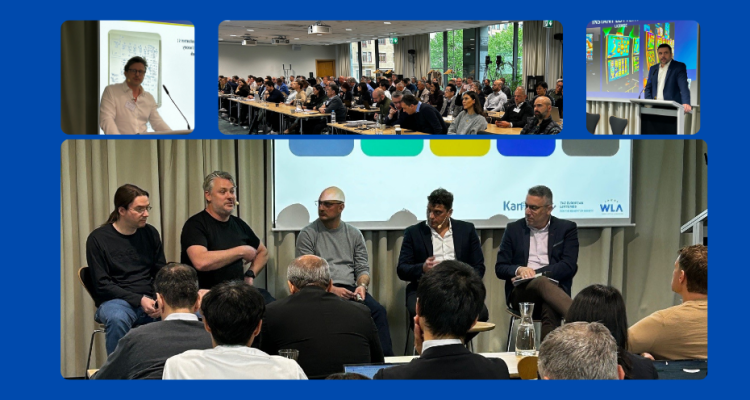
Block 3: Duty of Care – Responsibility in Legal Sports Betting
The third thematic block of the seminar focused on one of the most vital pillars of sustainable sports betting: responsibility. Experts explored how regulation, integrity, and innovation can align to protect players, ensure fair play, and strengthen legal markets.
- Christian Kalb (CK Consulting, France) emphasised that regulation is key to addressing the complex links between legal markets, illegal betting, and societal risks.
- Prof. Stefano Caneppele (University of Lausanne, Switzerland) introduced a WLA/UNIL project aimed at developing a scalable, transparent methodology to estimate the size of the illegal gambling market. Using macroeconomic data and machine learning, the project supports better-informed regulatory strategies.
- Antoine Beghin (FDJ UNITED, France) showcased France’s model of combining market competitiveness with sports integrity. FDJ’s strategy includes prevention toolkits, athlete engagement, and real-time monitoring, with strong collaboration across national and international partners like ULIS and the Council of Europe.
- Per Einar Karlsen (Norsk Tipping, Norway) presented a responsible gaming education programme tailored for athletes, emphasizing peer-to-peer communication and early prevention of match-fixing.
- Savvas Iliopoulos (OPAP, Greece) demonstrated how AI is used to detect excessive play, with tools like the “Safety Net Algorithm” and an RG email detection bot that enhances player protection and operational efficiency.
- Sara Jdily (La Marocaine Des Jeux, Morocco) highlighted the importance of an omnichannel strategy in today’s digital betting environment. By integrating physical and digital touchpoints, MDJS enhances player experience and strengthens the appeal of legal offerings in a competitive market.
”Responsibility is not a barrier to growth — it’s a foundation for long-term success. Through regulation, education, AI, and omnichannel strategies, the industry can protect players, uphold integrity, and stay competitive in a rapidly evolving landscape.”
An insightful final panel discussion on Integrity & Responsible Gaming, moderated by Gilles Maillet, President of ULIS brough together several key stakeholders - including two regulators (Sweden and Denmark), representatives of lotteries and a national sport federation - with their perspectives on how to safeguard sports integrity and promote responsible gaming:
- Simon Pedersen (Danish Gambling Authority) emphasized the importance of data-driven prevention and athlete protection.
- Andreas Arver (Svenska Spel, Sweden) highlighted proactive education, funding integrity officers, and rejecting risky betting offers to uphold integrity.
- Audrey Bourgeon (French Basketball Federation) shared how collaboration with regulators and operators like FDJ helps manage match-fixing alerts.
- Samuel Wahlberg (Swedish Gambling Authority) stressed the value of cross-sector cooperation between regulators, operators, sports bodies, and law enforcement.
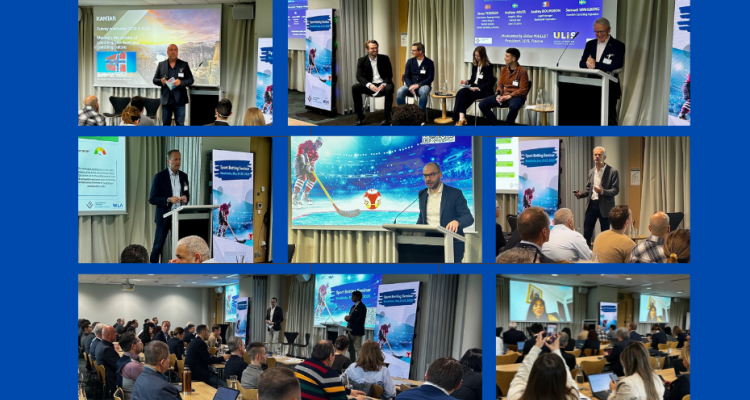
A special thanks goes to the Seminar moderators Alvise Angelini, EL Senior Policy Officer & Sport Secretary and Luca Esposito Polea, WLA Executive Director, as well as to all the speakers and participants. This was an impact Seminar, full of valuable insights to help shape the future of sports betting.

The quarter-final of the Ice Hockey World Cup in the iconic Avicii Arena, Stockholm


